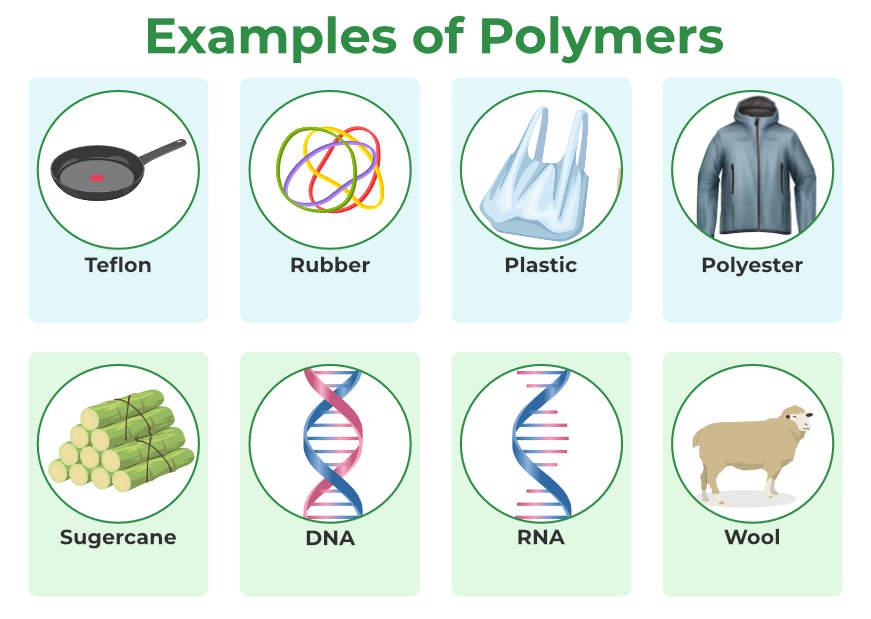Polymers in Medical Care: Improving Clinical Instruments and Treatments
Polymers in Medical Care: Improving Clinical Instruments and Treatments
Blog Article
Exploring the Varied Applications and Advantages of Polymers in Different Industries
Polymers, with their diverse range of homes and performances, have come to be crucial in different industries, each gaining distinct advantages from their application. From improving safety and performance in the vehicle sector to changing medical tools in the health care sector, polymers play a critical duty.
Automotive Industry Applications
Polymers play a crucial role in improving the performance and durability of various elements within the vehicle field. One noticeable use of polymers in the automotive market is in the production of light-weight components.

Medical Care Industry Advantages
In various health care applications, the benefits of making use of polymers are extensively recognized for their diverse range of useful properties. Polymers play an important duty in the medical care industry as a result of their versatility, biocompatibility, and cost-effectiveness. One of the main benefits of polymers in healthcare is their ability to be tailored to specific needs, such as adaptability, longevity, and biodegradability, making them ideal for a wide variety of clinical applications.
Polymer-based materials are extensively made use of in clinical gadgets, such as catheters, implants, prosthetics, and medication shipment systems, due to their biocompatibility and capacity to mimic all-natural tissues. These materials can lower the threat of allergic reactions or beings rejected, improving client safety and end results. In addition, polymers are lightweight, making them suitable for wearable clinical devices and ensuring patient convenience.
Moreover, polymers make it possible for the advancement of cutting-edge therapy techniques, such as hydrogels for cells design and nanocomposites for targeted drug delivery. Their convenience of handling and sanitation makes them vital for maintaining high requirements of health in healthcare settings. On the whole, the diverse advantages of polymers add dramatically to developments in clinical modern technology and client treatment.
Ecological Benefits of Polymers

Additionally, polymers can add to power savings due to their lightweight nature. In industries such as transportation, lightweight polymer materials can help in reducing gas intake and greenhouse gas discharges. Additionally, polymers can make it possible for the growth of energy-efficient items such as insulation products that boost power conservation in buildings.
Additionally, polymers play a crucial role in reducing water pollution. For instance, the use of polymer-based filtration systems can effectively get rid of toxins and impurities from wastewater, securing water sources and environments. On the whole, the ecological benefits of polymers make them important assets in advertising sustainability and environmentally friendly practices throughout different industries.
Polymers in Electronic Devices and Modern Technology
Taking into consideration the boosting demand for innovative and lasting options in more information contemporary sectors, the assimilation of innovative polymer innovations in the realm of electronic devices and modern technology has become a critical technique for driving performance and performance. Polymers have changed the electronic devices market by enabling the manufacturing of lighter, a lot more versatile, and durable digital devices. From smart devices to clinical devices, polymers play a crucial duty in improving product layout and functionality.
One substantial advantage of polymers in electronic devices is their protecting properties, which aid protect delicate electronic components from environmental factors and electric disturbance. Additionally, polymers are important in the growth my site of flexible screens, wearable modern technology, and printed electronics, using countless possibilities for producing clever and interconnected tools.
Additionally, the usage of polymers in digital product packaging has caused innovations in miniaturization and thermal management, enhancing the general efficiency and integrity of digital systems. As technology continues to progress, the convenience and adaptability of polymers will unquestionably drive additionally technology in the electronic devices sector, shaping the future of technology.
Role of Polymers in Construction and Infrastructure
Polymers offer countless benefits in the building sector due to their convenience, longevity, and cost-effectiveness. One crucial role of polymers in building and construction is their usage in finishings and sealants, supplying protection versus ecological elements such as dampness, UV radiation, and rust.
Furthermore, polymers play a critical role in sustainable building techniques by making it possible for the growth of energy-efficient frameworks. Shielding products made from polymers assist regulate interior temperature levels, lowering the need for heating and cooling systems and eventually reducing power usage - Polymers.
Final Thought
Finally, polymers play an essential role in different markets such as vehicle, health care, ecological, electronic devices, and building. Their flexible residential or commercial properties make them important in producing innovative services and products. From improving gas performance in cars to improving medical devices, polymers offer numerous advantages. In addition, their influence on lowering waste and advertising sustainability highlights their value in contemporary applications. The widespread use of polymers shows their significant contribution to advancing modern technology and boosting top quality of life.
Report this page